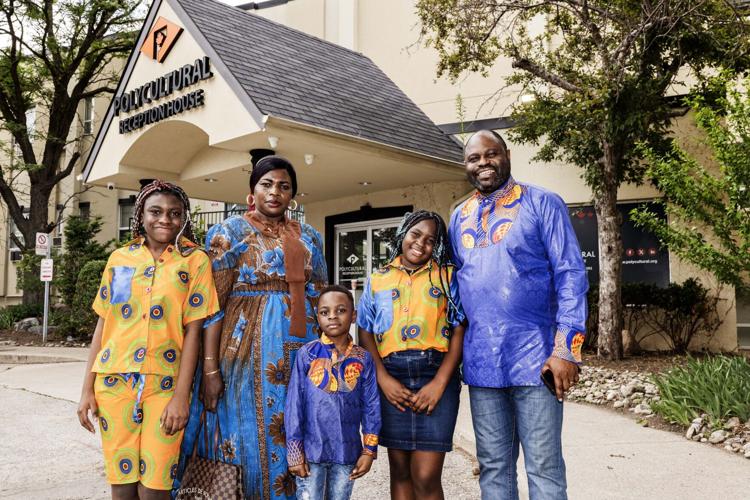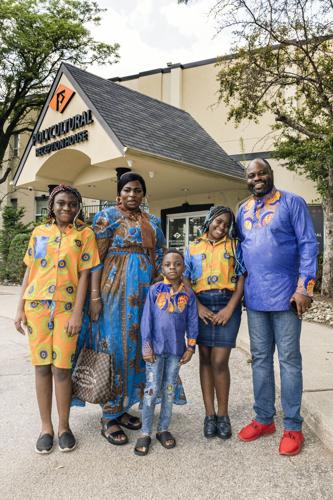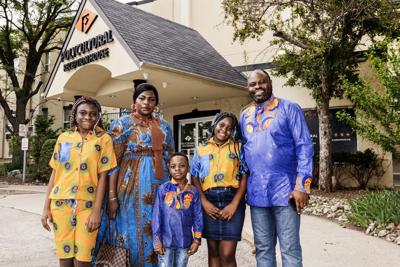For years, government-sponsored refugees resettled in Peel and Halton regions had been put up in hotels upon arrival — for weeks — before they could secure permanent housing.
But a community agency has found a way to better house and serve these newcomers, and save taxpayers some money.
The Polycultural Reception House, officially opened in June in Mississauga, is the first in Peel — and largest in Ontario — dedicated shelter and service hub for refugees referred by the United Nations and resettled to Canada, with the federal government’s financial support in their first year in the country. Many Syrians and Afghans were put up in hotels when they came under the program.
Last year, Ottawa ushered in 21,115 government-sponsored refugees who arrived as permanent residents. This year, 15,250 will come under this program, including 875 destined for the new reception house near Hurontario Street and Dundas Street West.
“It’s an asset,” said Marwan Ismail, executive director of Polycultural Immigrant and Community Services. “Somebody has to take the risk and do it to the benefit of the community.”
Polycultural has provided resettlement assistance for government-sponsored refugees in Peel since 2016, after Ottawa opened the door to 25,000 Syrians displaced by civil war. However, it had to contract hotels to accommodate new arrivals.
Since 2018, the agency had been looking for a permanent place to shelter and serve the refugees. The challenge was that no major commercial banks would provide a loan. Last year, with the backing of Vancouver City Savings Credit Union, the agency bought a building in Mississauga with a $27 million price tag.
The 42,000-square-foot, three-storey property, a former seniors home, has 79 rooms, including 10 suites for larger families, plus activity rooms, a dining area and office spaces. The shelter has a capacity for 160 to 180 residents at a time, and offers three meals a day. Residents can stay for up to 21 days.
The grand opening of the latest facility followed the launch of the Peel Reception Centre for asylum seekers, near Dixie Road and Eglinton Avenue, which was a joint effort by the federal and municipal governments to come up with a sustainable solution to Greater Toronto’s refugee housing crisis.
But unlike that government-funded project, Polycultural is taking a huge risk by taking on the loan as a not-for-profit, which gets paid by the federal government based on program occupancy.
“It’s a huge liability for the organization because we don’t have guaranteed income,” said Ismail, who estimates that owning and maintaining its own no-frills shelter helps save taxpayers 25 per cent of the costs of hotels. “The building is ours. If anything happens in the building, it’s on us.”
The new centre was also needed for logistical reasons. In the past, Polycultural would lease part of a hotel but had to find a new one every 12 to 18 months because the hotel would lose regular clientele due to a bad rap online for serving refugees, or other issues with the hotel franchise.
There’s also a perception issue for Canadians who see refugees being accommodated and fully served in hotels as if they were on holiday, said Ismail.
“We do have a very hard economic situation these days, so people are not even able to go for vacation, and the government is spending much more money on refugees, which is a mis-conceptional thing,” he noted. “Fair enough. So here’s a shelter for refugees.”
Ndumbi Didier Kalala fled war and political unrest in Congo and lived in South Africa for almost 20 years with his wife before he and his family were resettled in Canada in June. The 44-year-old said he is grateful for the opportunity to start a new life in this country and give his three children — Blessing, 14; Happiness, 9; and Jonathan, 6 — a better future.
He was a protected person in South Africa but was refused permanent residence; his kids were not automatically considered for citizenship until they turned 18.
On June 16, with six pieces of luggage in tow, the family arrived at the Polycultural Reception House from Pearson airport.
“Canada is a very good place and everyone dreams to be here,” said Kalala. He and his wife have already attended orientations about the community, the education system, Canadian family law and transportation. The family moved into their own apartment in Mississauga on July 7.
“Polycultural staff are helping us with everything,” said Kalala, who worked in hospitality in Durban, South Africa, and was a duty manager before he left for Canada.
“I feel peace in my heart. Next for me is to get my kids into school and to find a job.”

































To join the conversation set a first and last name in your user profile.
Sign in or register for free to join the Conversation